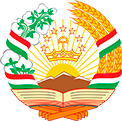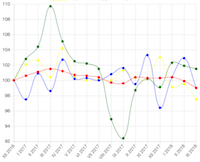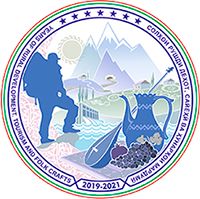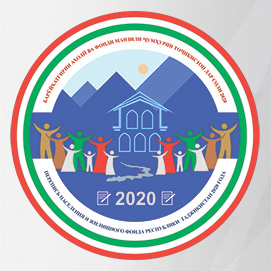On November 23, 2018, the Agency on Statistics under the President of the Republic of Tajikistan held a donor - meeting with representatives of international organizations, ministries and agencies of the Republic of Tajikistan, as well as those participating in the implementation and monitoring of the SDGs.
The First Deputy Director of Agency on Statistics under the President of the Republic of Tajikistan Shokirzoda Shodmon made an introductory speech, who noted that in September 2015, the United Nations Member States adopted the Sustainable Development Agenda until 2030, based on 17 Sustainable Development Goals (SDGs).
The goals of sustainable development take into account different national conditions, potential and level of development, as well as national strategies and priorities. The targets are global in nature, while each country independently sets its own national goals, guided by global objectives, based on national conditions.
Goals and objectives include economic, social and environmental components and take into account their interrelations in the process of achieving the goals of sustainable development in all its aspects.
It is important to emphasize that the data on SDGs will have to be collected in accordance with the Fundamental Principles of Official Statistics, which were adopted at the UN General Assembly in 2014.

Since 2015, all countries have been actively working to achieve the SDGs and monitor its implementation. The Republic of Tajikistan also set about implementing these goals.
To ensure that national peculiarities and priorities are fully implemented of Agenda 2030, as well as to take into account the integrated and indivisible nature of the SDGs and to ensure a balance between all three components of sustainable development: economic, social and environmental, a national coordination mechanism has been established in the Republic of Tajikistan. It should be noted that the Founder of Peace and National Unity – Leader of the Nation, President of the Republic of Tajikistan Emomali Rahmon, established the Council for National Development under the President of the Republic of Tajikistan.
At the last meeting of the Council, a specific task for the Agency on Statistics was set to nationalize the SDG indicators by April 1, 2019.
Nationalizing the global SDG indicators is a policy focus, backed up by statistical data, which assumes that progress in achieving the SDGs and ensuring that “no one left behind” depends largely on high-quality, accessible, timely and reliable disaggregated data.

Then Mr. Kiyomiddin Davlatzoda, Deputy Director of the Agency on Statistics, made a presentation on the role of the inter-agency Working Group and its task for monitoring the implementation of the SDGs. It was noted that the monitoring of the achievement of the SDGs is planned through the joint work of the central government bodies and local executive bodies, as well as the involvement of civil society and international partners in this activity. In the Republic of Tajikistan, the work of state authorities on compiling a list of national indicators, on the basis of which a national system of indicators and monitoring of SDGs will be formed, has not yet begun. It is necessary to create a working group from among representatives of ministries and departments to develop national indicators. He also stressed that an important focus at this stage is the collection and dissemination of SDG indicators. A key task in this direction is the strengthening of the statistical capacity of the Republic of Tajikistan, as well as strengthening coordination and cooperation between the various actors in sustainable development processes.

Rajabova Nigina, a member of the Working Group on the implementation of the monitoring of the SDGs under the Agency on Statistics under the President of the Republic of Tajikistan, presented information on the analysis of the current activities of the Agency on Statistics to ensure the qualitative monitoring of the achievement of SDG indicators. Rajabova in her speech noted that the main problems faced by the Republic of Tajikistan in the formation of a national system of indicators for global indicators are gaps in data and methodology. Full information is available only for 38 percent of indicators, for 22 percent there is partial information and for almost 40 percent there are no data and calculation methodology.
To achieve the SDGs, it is necessary to develop a management architecture that will allow solving the issues of implementing the SDGs systematically and comprehensively: expanding and improving the use of administrative data; strengthening integration and partnerships with government agencies and organizations; increased integration and partnerships with custodial organizations. Since the AS working group on SDGs does not include custodial agencies, it is necessary to consider the possibility of developing a joint agreement between the AS and the UN Country Team; improved communication of the SDG monitoring with national, sectoral and regional strategies and programs through the use of the same indicators; the definition of data standards, since administrative data can have a number of potential deficiencies related to the quality of data collection and processing procedures; the use of advanced data methods; improvement and development of technology.
During the meeting, the presentations of two reporters were discussed, in particular, the UNFPA representative offered to submit concrete proposals for the creation of this Working Group, and determine what tasks will be assigned to the International Institutions involved in the implementation of the SDGs, as well as the ministries and departments of the Republic of Tajikistan emphasized the role of the UNDAF in this direction.

The representative of the WHO - Ms. Pirova Zulfia mentioned that it is necessary to show clarity in all developed indicators. Currently, a working group (WG) is functioning under the Ministry of Economic Development and Trade, which is also developing indicators. So many indicators are difficult to read. Mr. Odinaev O.M. - Member of the Working Group under the Ministry of Economic Development of the Republic of Tajikistan explained that the current working group under the Ministry is working on revising indicators related to the Medium Term Development Program action matrix for 2016-2020, but the development of national indicators is not part of the task of this WG.

The representative of the “UN Women” Ms. Mirzoyeva V.M. noted the role of the Inter-Agency Expert Working Group at the global level, and proposed the creation of a similar Working Group at the RT level.
The representative of the United Nations Development Program, Mr. Daler Shodiev, also thanked the organizers of the meeting for creating this platform. It was stressed that at the present time in the National Development Council under the President of the Republic of Tajikistan a project has been proposed to create task forces for the implementation of the SDGs. It is intended to create a separate group on issues related to the collection of data on SDG indicators.
At the end of the meeting, it was proposed to all the participants of the meeting to submit their members to this working group before December 1, as well as proposals for improving the activities of this WG.
























































